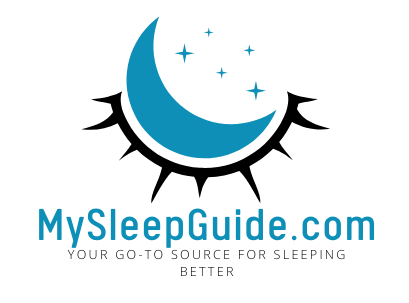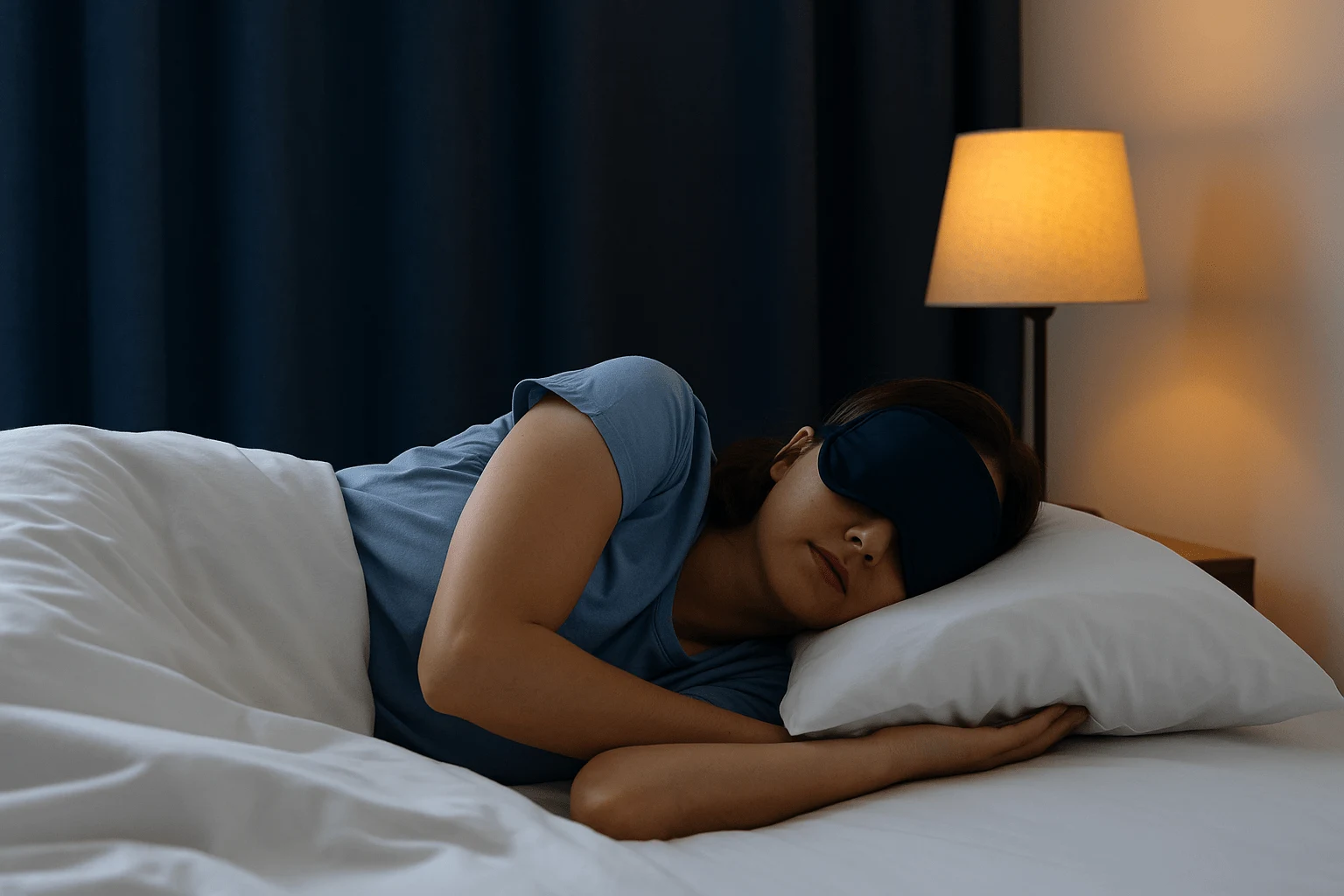Trying to figure out how to sleep well on night shift? You’re not alone.
Working when your body’s begging for rest — and sleeping when the world’s wide awake — messes with everything from your focus to your mood. Whether you’re a nurse, a security guard, or pulling night shifts at the warehouse, staying alert on the job is hard enough. But sleeping afterward? That’s the real challenge.
The good news? You can train your body to rest deeply, even during daylight hours — no expensive sleep aids or extreme hacks required.
In this guide, you’ll learn simple, science-backed strategies to help you reset your rhythm, wind down after a shift, and finally get the rest your body’s craving. Let’s start by looking at why night shifts make sleep so difficult in the first place — and what you can do about it.
Why Night Shifts Wreck Your Sleep (And What’s Going On Inside Your Body)
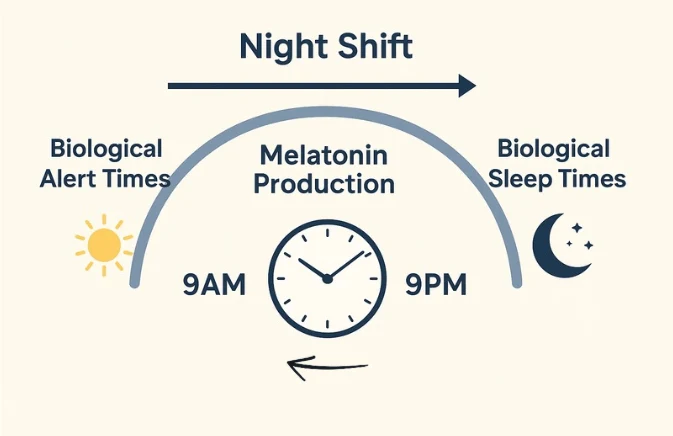
When you work the night shift, you’re going against something your body was never designed to fight: your circadian rhythm. This is your internal clock — the system that tells your body when to feel alert and when to wind down. It’s synced to light and dark, which means when the sun rises, your brain thinks it’s time to be awake, no matter how tired you are.
Here’s the problem: melatonin, the hormone that helps you feel sleepy, naturally rises in the evening and drops in the morning. But if you’re coming home from a shift at 7 a.m. and trying to fall asleep in broad daylight, your body’s still running on “wake up” mode.
That’s why sleeping after a night shift often feels so unnatural. Your brain’s telling you to stay alert, even if your body is screaming for rest. This mismatch leads to broken sleep, lighter sleep, or in many cases — no sleep at all.
You may have also heard of something called shift work sleep disorder. It’s real — and it affects people who work nights or rotating shifts. Symptoms include:
- Trouble falling asleep during the day
- Waking up too early or too often
- Feeling groggy, irritable, or unfocused at work
- Long-term sleep deprivation that doesn’t go away with a day off
The longer you’re on an irregular schedule without support strategies, the more your sleep quality can decline. Over time, poor sleep can increase the risk of burnout, weakened immunity, weight gain, and even heart problems. That’s not to scare you — it’s just the reality of pushing your body to run on the wrong schedule without backup.
The best part — you can reset your rhythm, even with a tough schedule. It starts with creating the right environment and giving your body the signals it needs to sleep.
Let’s break down exactly how to do that…
How to Sleep After a Night Shift — Step-by-Step Plan
Let’s break down what actually helps when your sleep schedule is upside down. These steps aren’t about perfection — they’re about giving your body consistent signals that say, “It’s time to rest now.”
🟧 1. Set Up a True Sleep Zone
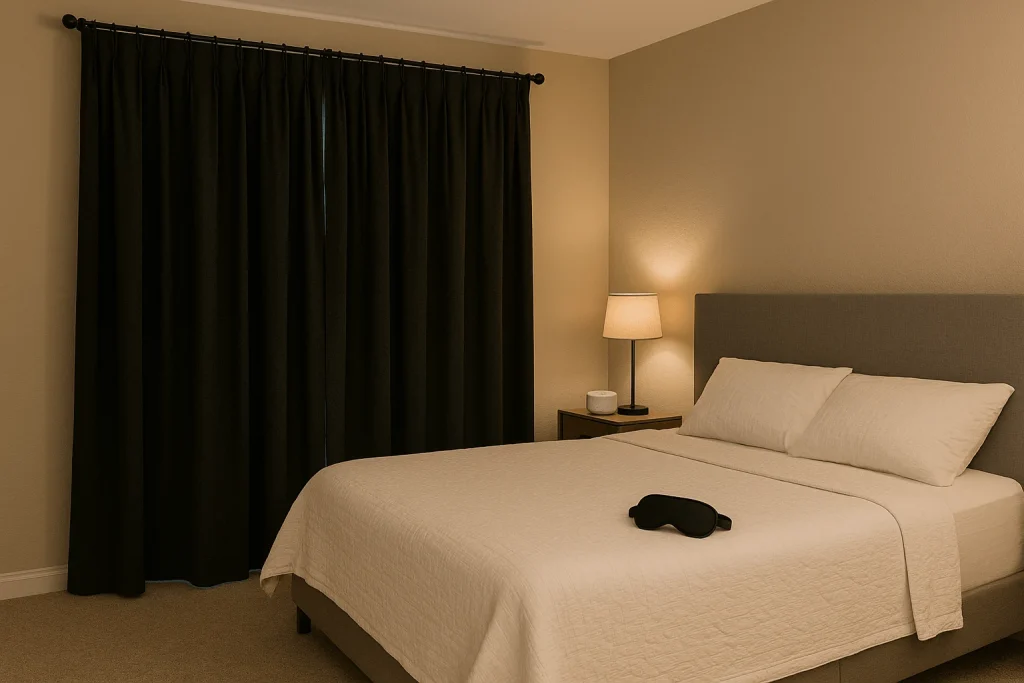
Trying to sleep during the day without a proper setup is like napping in a coffee shop — noisy, bright, and frustrating.
Here’s what helps:
- Block out sunlight completely with blackout curtains or a sleep mask
- Use white noise or a fan to drown out daytime sounds
- Keep your room cool — around 60–67°F (16–19°C) is ideal
- Dim lights 30–60 minutes before bed to help your brain shift into sleep mode
🟦 Quick Tip: Don’t just crash right after your shift. Give yourself a short buffer (20–30 minutes) to wind down — stretch, take a warm shower, or read something calming. You’re signaling to your body that it’s safe to relax.
🟧 2. Use Light Strategically — Not Randomly

Light is powerful. It controls your circadian rhythm, and most night shift workers don’t realize how much it’s working against them.
- During your shift: get bright light exposure if possible (lightbox or overheads)
- After your shift: wear blue light blocking glasses on the way home
- Once home: keep lighting low to encourage melatonin production
Bright morning light tells your brain it’s “wake-up” time. You want to avoid that until you’ve had your full rest.
🟧 3. Time Your Caffeine — Then Stop
Caffeine can be your friend — but only if you’re careful.
- Use it early in your shift to boost alertness
- Cut it off at least 6 hours before you plan to sleep
- Skip the habit of a coffee on the way home — it’ll sabotage your rest
Why it matters: Caffeine lingers in your system longer than you think — even small amounts can disrupt your wind-down and delay sleep.
🟧 4. Embrace the Strategic Nap

A short nap during your shift (if allowed) can help you stay sharp — but keep it brief.
- Ideal nap: 20–30 minutes
- Anything longer can lead to grogginess
- Try napping just before your shift starts if you’re going in extra tired
🟧 5. Stick to a Routine — Even on Days Off (as much as you can)
The more consistent your sleep and wake times, the easier it is for your body to adjust. Full schedule flips on weekends can undo your progress.
You don’t have to live like a robot — but if you can keep your sleep routine steady, your brain will start catching on.
Related Posts:
- 5 Proven Mental Exercises for Sleep That Actually Work
- 7 Herbal Teas for Sleep That Calm Your Mind Fast
Common Mistakes That Sabotage Night Shift Sleep
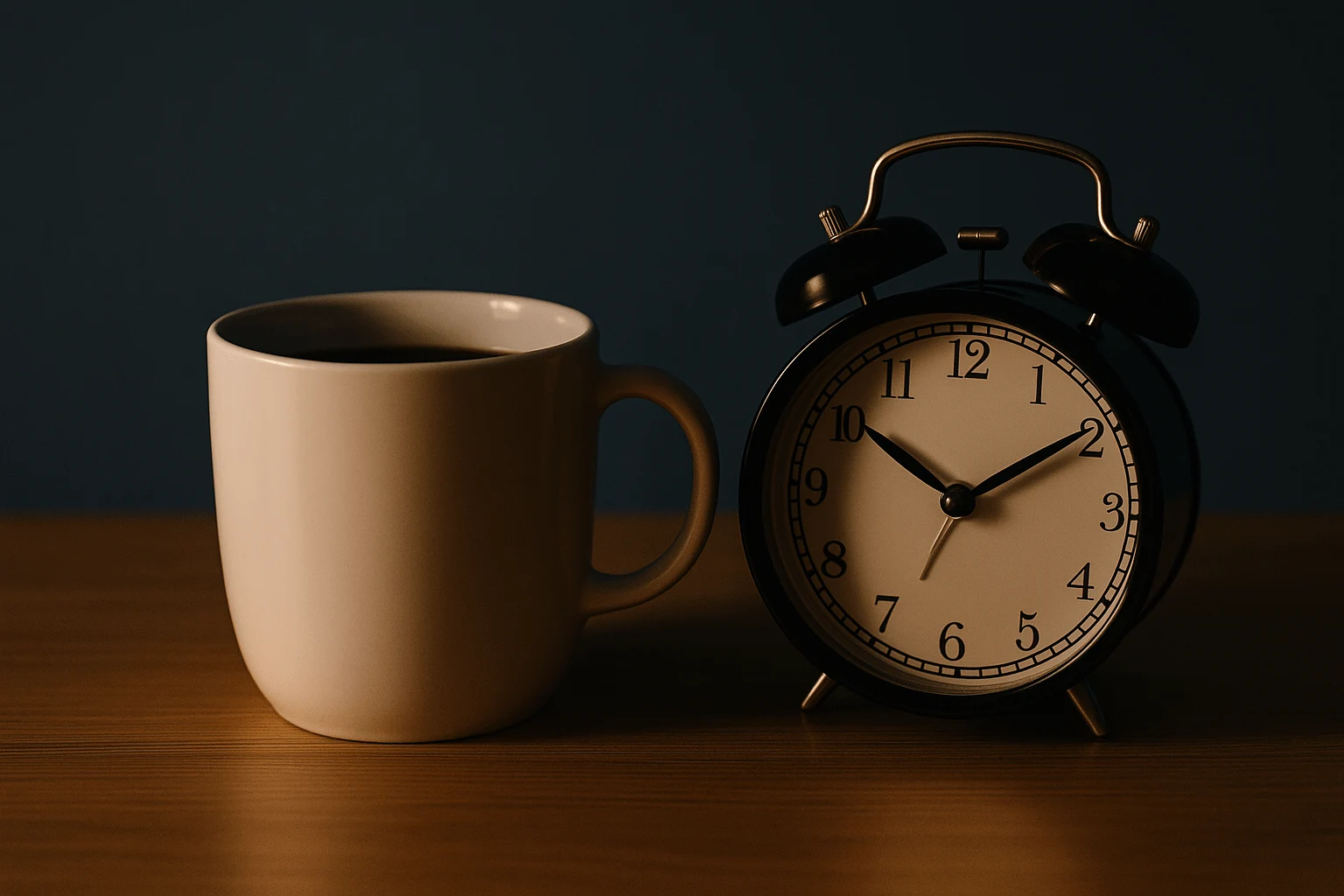
Even when you’re doing a lot of things right, a few small habits can quietly ruin your sleep without you realizing it. These aren’t always obvious — especially if you’re just trying to survive your shift and crash afterward.
Here are some of the most common mistakes that keep night shift workers tired, wired, and stuck in a cycle of bad sleep.
🔴1. Drinking Caffeine Too Late in the Shift
Caffeine is helpful when timed well — but drinking coffee or energy drinks in the second half of your shift can seriously delay your ability to wind down later.
Fix it: Try to have your last dose of caffeine at least 5–6 hours before your planned bedtime. If you need a little boost later, switch to water or something decaf.
🔴 2. Staying Up Too Long After Work
After a long shift, it’s tempting to run errands, scroll your phone, or squeeze in a “normal” morning — but the longer you stay up, the more alert your body becomes.
Fix it: Go to bed within 30–60 minutes of getting home to avoid a second wind.
🔴 3. Napping Too Close to Bedtime
Yes, naps can help. But taking a long nap in the afternoon before your next night shift can make it harder to sleep afterward.
Fix it: If you nap before work, aim for 20–30 minutes max, and not too close to the end of your “day.”
🔴 4. Trying to Flip Your Schedule on Days Off
It’s tempting to live like a daytime person on your days off. But sudden flips confuse your body and make it harder to readjust each week.
Fix it: Instead of flipping completely, try shifting your sleep partway toward a more normal schedule, or just keep your sleep and wake times within a few hours of your workday routine.
Avoiding these pitfalls can make a big difference — especially when combined with the sleep-friendly habits we covered earlier.
Next up: let’s talk about sleep supplements — what helps, what to avoid, and how to use them wisely.
Should You Use Sleep Aids or Supplements?

If you’ve ever come home from a night shift, stared at the ceiling for an hour, and thought, “Should I just take something?” — you’re not alone.
Sleep aids and supplements can sound like an easy fix, but not all of them work the same way, and some can actually make things worse if used the wrong way. The key is knowing when to use them — and which ones are worth your time.
🟦 Melatonin (Use with Timing in Mind)
Melatonin isn’t a sleeping pill — it’s a hormone your body already produces to signal when it’s time to sleep. If your rhythm is off (which is common with shift work), melatonin can help nudge it back on track — but only if you take it at the right time.
- Try a low dose (0.5–1 mg) about 30–60 minutes before bed
- Don’t take it in the middle of the night or right after waking up
- It works best when paired with a dark environment and a steady sleep routine
🟦 Magnesium (Calms the Nervous System)
Magnesium is another gentle option that helps relax your muscles and settle your mind before bed. It’s especially helpful if you feel tense or wired after work.
- Look for magnesium glycinate or citrate (they’re easier on digestion)
- Take it with a light snack if your stomach’s sensitive
What to Avoid
It’s tempting to reach for over-the-counter sleep meds or alcohol to knock yourself out. But these can lead to poor quality sleep and even make it harder to fall asleep naturally later.
- Most OTC sleep aids cause next-day grogginess
- Alcohol may help you fall asleep faster but disrupts deep sleep
- Long-term use can mess with your body’s ability to regulate sleep on its own
If you’re curious about natural options or want help choosing safe supplements, A Beginner’s Guide to Sleep Supplements offers a solid overview of what actually works — and what to steer clear of.
What If You’re Still Struggling to Sleep?
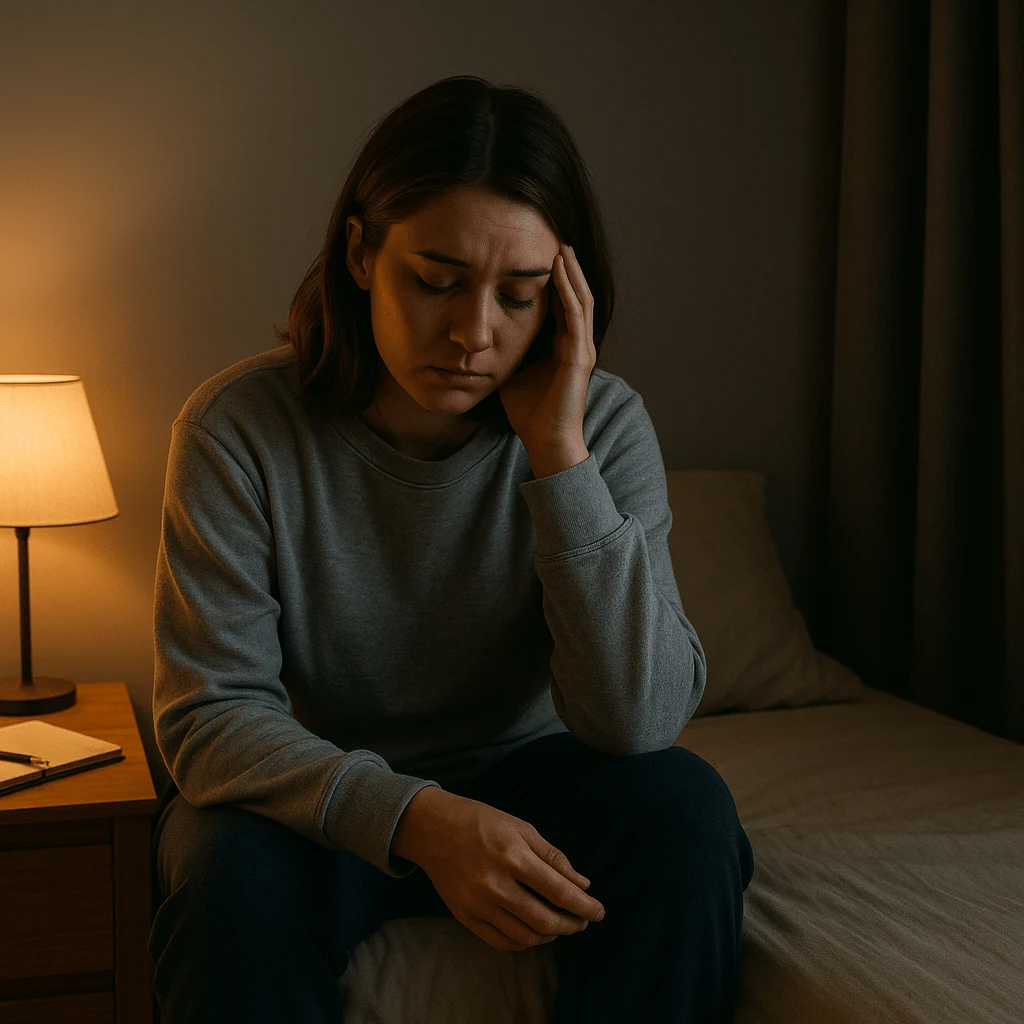
You’ve blocked the light, timed your caffeine, tried the routines — and sleep still isn’t coming. That can be deeply frustrating, and it’s not something to just “push through.”
Sometimes, trouble sleeping after a night shift isn’t just about habits — it could be a sign of something deeper, like shift work sleep disorder or even a form of insomnia.
When to Reach Out for Help
Here are a few signs it might be time to talk to a doctor or sleep specialist:
- You regularly get less than 4–5 hours of sleep, even when you try to rest
- You feel chronically exhausted, foggy, or irritable — even on days off
- You’ve tried multiple sleep strategies with little to no improvement
- Sleep issues are affecting your relationships, mood, or work performance
A sleep specialist can help identify if there’s an underlying issue (like undiagnosed apnea, anxiety-related insomnia, or circadian rhythm disorders) and create a plan that actually fits your lifestyle.
Related Post: The Most Overlooked Sleep Disorders ( and How to Spot Them Early)
What Else You Can Try
If you’re not quite ready to book an appointment, here are a few gentle next steps:
- Track your sleep: Use a notebook or app to log how many hours you’re getting, how you feel when you wake up, and what time you’re going to bed
- Try CBT-I strategies: Cognitive Behavioral Therapy for Insomnia is highly effective — even a few simple mindset shifts around sleep can help
- Experiment with your schedule: Slightly adjusting your sleep/wake times or rotating your routine might reveal what works best for your body
And most importantly? Don’t blame yourself. Shift work asks your body to do something unnatural. You’re not lazy, broken, or doing it wrong — you’re navigating a tough schedule that takes real strategy to manage.
Final Thoughts:
Night shift life isn’t easy — and learning how to sleep well when the rest of the world runs on a different clock takes patience. But it’s not impossible. With the right environment, a consistent routine, and a few smart shifts in how you approach rest, you can train your body to get the recovery it needs.
Here’s what to remember:
- Use light and darkness to your advantage
- Stick to a pre-bed routine, even if it’s short
- Time your caffeine and naps carefully
- Try low-dose melatonin or magnesium only when needed
- Don’t ignore ongoing sleep struggles — help is available
Even small changes — like blocking sunlight, adjusting your bedtime, or cutting off screens earlier — can lead to big results over time. You don’t need to fix everything overnight. Just start with one or two steps, and build from there.
Related Post : How to Personalize Your Nighttime Routine for Maximum Sleep Quality
